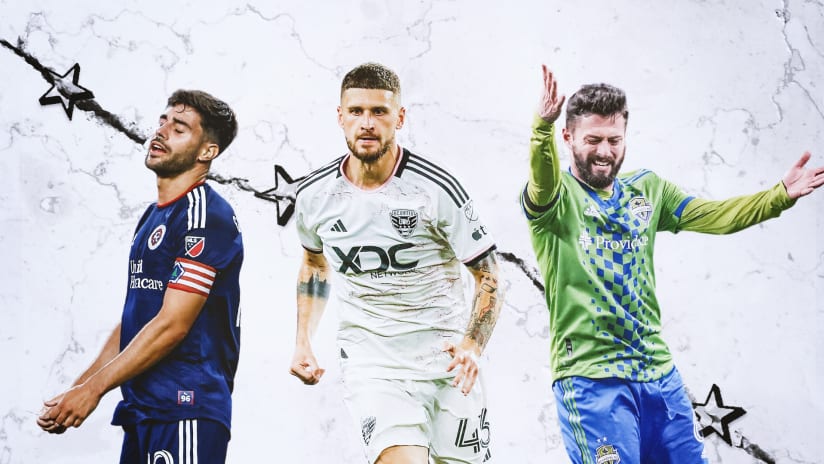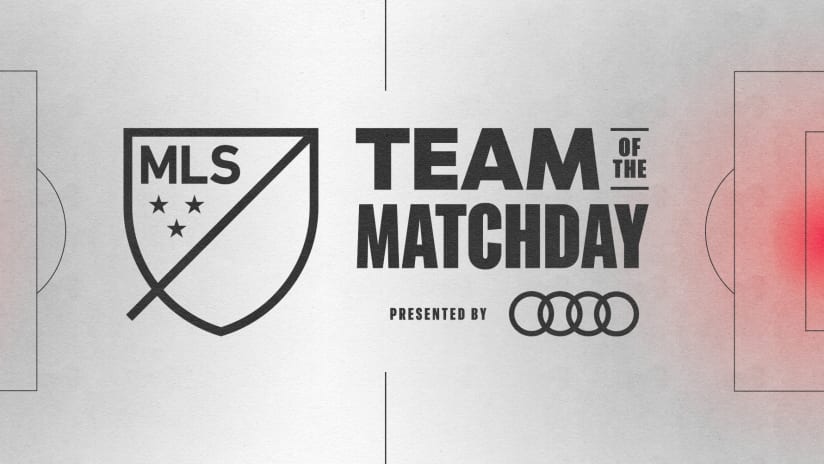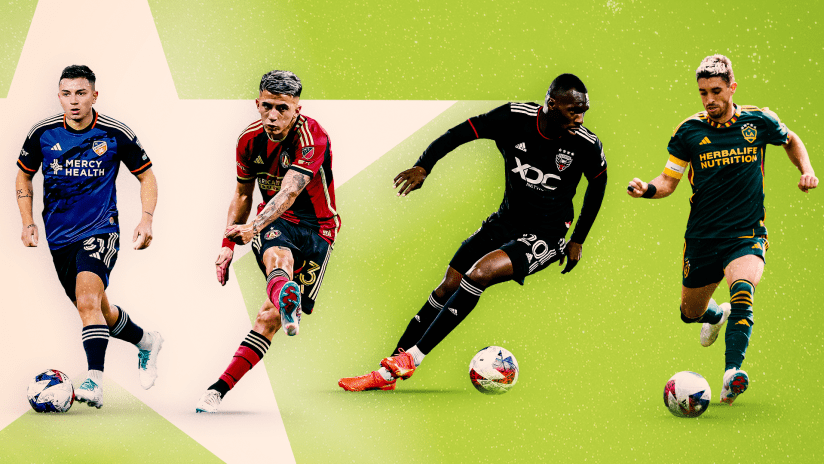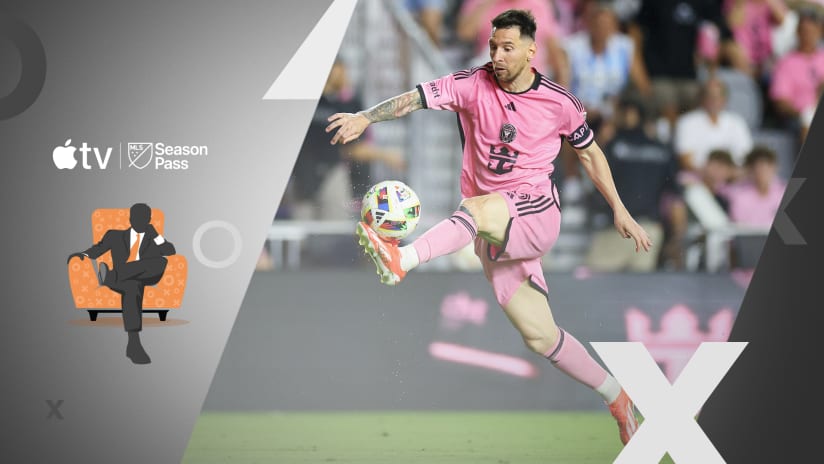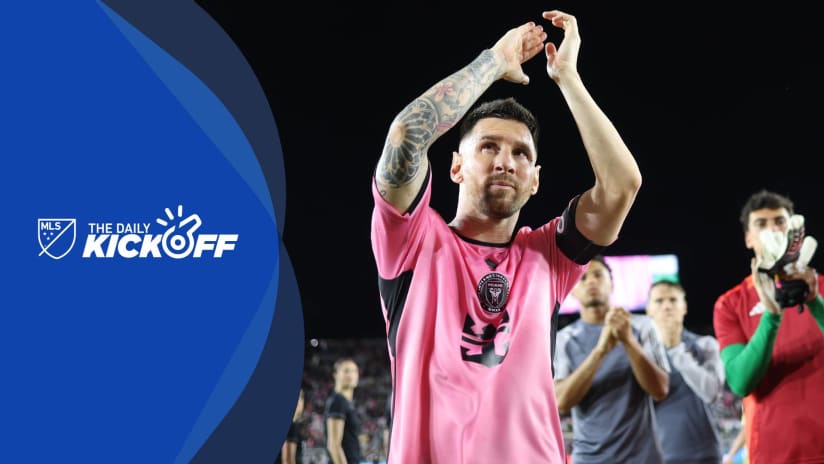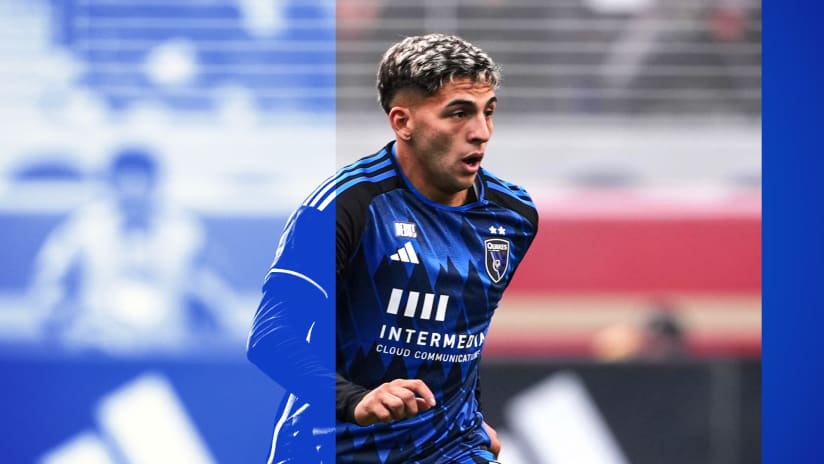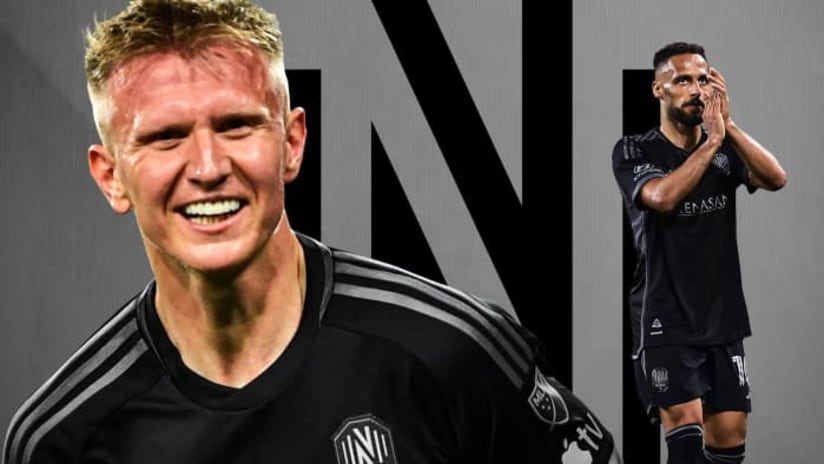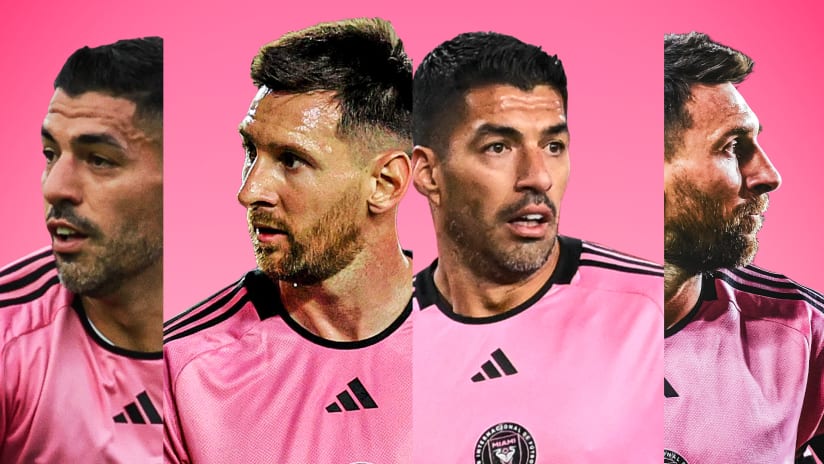The MLS All-Star Game – and really any All-Star game for that matter – is all about fun.
It’s the ultimate “give the people what they want” sporting event, which is also why this one's flanked by a Kehlani concert on Monday, July 17 and a Skills Challenge presented by AT&T 5G on Tuesday, July 18. That latter event features, among other tests of technical acumen, Arsenal and MLS’ best launching balls at the crossbar from increasingly absurd distances.
Festivities and flair aside, there’s another treat that lies in each All-Star announcement: the banter. I.e. who got snubbed? With 29 MLS teams and only one 26-man roster, there are plenty of worthy players to choose from.
So let’s dive in, position by position. (All stats provided by TruMedia via StatsPerform unless otherwise noted.)
But first, one more thing: Before you ask, no, I will not be providing suggestions on who should be taken out to make way for the players below. Remember, this is about fun, and hypothetically taking accolades away from excellent players is not that.
There are a handful of players who would easily qualify as snubs, but have extenuating circumstances like injuries or unsettled contract situations that complicate their potential inclusion in the ASG and therefore bar them from this list.
Some of those players are the St. Louis CITY SC duo of João Klauss (injury) and Eduard Löwen (injury), as well as Toronto FC defender Richie Laryea (loan from Nottingham Forest ends this summer).
Between Roman Bürki and Djordje Petrovic, the two obvious choices for this position made the team. But Brad Stuver and Andre Blake can count themselves unlucky to have not earned invites to D.C. as well.
The two stalwart shot-blockers rank second and third, respectively, (trailing only Bürki) in goals prevented per 90 (calculated by subtracting goals conceded from expected goals against).
Stuver and Blake may not have the impressive clean sheet or goals against numbers of Roman Celentano, Joe Willis or Stefan Frei, but both managed to keep the bottoms from falling out for their clubs (even if just barely in the case of Stuver) during periods of massive rotation across their backlines due to injury and schedule congestion.
Don’t be surprised if both post big clean sheet numbers in the second half of 2023.
The intellectual’s choice here is Daniel Lovitz. Not only has the Nashville SC defender started every regular-season match for the hand’s-down best defensive unit in the league (0.8 goals allowed per game), but he’s also been crucial to his team’s buildout play, leading the Boys in Gold (and all left backs in the league) in total touches. And with 173 passes into the final third on the year, those touches haven’t been in vain. The next highest tally for left-sided fullbacks or wingbacks belongs to Claudio Bravo, with 103.
The remember-it’s-about-the-fun choice here is Andrew Gutman, for whom three goals and five assists in 16 starts pretty much says it all.
Honorable mentions include DeJuan Jones (five goal contributions on the year and solid defensive stats) and Diego Palacios (leading his position group in tackles, interceptions and recoveries).
All due respect to Americans Matt Miazga, Walker Zimmerman and Tim Parker, who each got the call-up amid fantastic seasons, but some excellent play from international center backs went unacknowledged in this year's roster.
Yerson Mosquera, Andrés Reyes and Yeimar Gómez Andrade have all put up stellar numbers for some of the best defensive teams in the league (FC Cincinnati, New York Red Bulls and Seattle Sounders FC, respectively).
A quick stats dive for each (relative to their position):
- Mosquera: 3rd in tackles, 5th in recoveries, 3rd in duels
- Reyes: 2nd in interceptions, 4th in recoveries, 4th in duels
- Andrade: 1st in interceptions, 2nd in recoveries, 2nd in passes into opponents’ half
San Jose’s Rodrigues has also put up excellent numbers in many of the above categories, but for a much more porous defense overall.
Stop me if this pattern looks familiar. Nashville’s Shaq Moore gets the advanced-stats-driven nod, with three assists on the year to coincide with excellent defensive and build-up-oriented numbers.
Meanwhile, an Atlanta United fullback, in this case Brooks Lennon, gets the do-it-for-the-fun nod. Just like Gutman, Lennon has eight goal contributions on the year from his attack-oriented fullback roll.
Are team systems driving the picks here? Possibly, but Atlanta score a ton of goals, while Nashville concede very few, and those are both, as it turns out, key metrics in soccer.
Other honorable mentions include Alex Roldán, Jake Nerwinski, Juan Mosquera and Brandon Bye.
Keeping true to the 4-3-3 formation presented on the ballot, we’re giving a special shoutout to the guys who do the dirty work in their teams’ engine rooms.
And in terms of unsung heroes, nobody fits the bill better than João Paulo, who is arguably one of the most egregious snubs of the year.
Another advanced-stats hero, JP, as he’s affectionately known in Seattle, dominates his peers in both defensive and attacking metrics. Of all midfielders who’ve played more than 15 games in the league, he’s first in recoveries per 90 and second in interceptions per 90, while also besting most of his holding mid peers in buildup stats like passes into final third and sequences ending in shots.
The Sounders' team results bear these stats out too, with Seattle conceding the second-fewest goals per game while posting the third-highest possession rate in the league – both key indicators of excellent defensive midfield play.
There are other eligible candidates who post great defensive numbers but are less involved in meaningful buildup (like Obinna Nwobodo and Franco Ibarra), as well as excellent ball progressors who don’t do quite as much dirty work (like Gastón Brugman and Ilié Sanchez), but only João Paulo is excellent at both. Of the players not selected for the All-Star team, James Sands comes the closest to matching JP’s two-way production.
Holy No. 10 Batman, that’s a lot of attacking midfielders!
Between Luciano Acosta, Thiago Almada, Hany Mukhtar, Lucas Zelarayán and Riqui Puig, five out of the nine midfielders selected to the ASG specialize much more in chance creation than denial. And considering Aidan Morris was voted in as the team’s lone defensive midfielder in a 4-3-3, and that coach’s-pick José Martinez is clearly a defensive midfielder, that only leaves two out of the seven remaining spots to box-to-box guys: Héctor Herrera and Mathieu Choinière.
No complaints here (remember the aforementioned fun mantra), but let’s shine some light on excellent two-way midfielders who missed the cut (while also acknowledging that Dániel Gazdag and Carles Gil, each with 7g/9a on the year, were extremely hard done by to become the odd No. 10s out).
First up is Mateusz Klich, who, to be fair, isn’t quite a box-to-box guy for D.C. United, often occupying a more advanced position in the front three of Wayne Rooney’s favored 3-4-3. Still, the Polish midfielder averages far more tackles per 90 than the five attacking midfielders who made the team, and he even outpaces purer central midfielders like Connor Ronan and José Cifuentes (also arguable snubs this year) for that mark.
More to the point, Klich's 2g/7a have powered a D.C. side whose rise from runaway Wooden Spoon winner last year to Audi MLS Cup Playoffs contenders this year has probably gone underappreciated. Klich is also eighth in the league for all midfielders (including the attacking specialists) in chances created per 90.
In a similar mold, Julian Gressel’s 3g/5a from central midfield have led the way for the Whitecaps, who currently sit fifth in the Western Conference in points per game. He’s also a big factor in Vancouver leading the league in xG per game, often pulling the strings in the final third to create golden opportunities for his side.
The obvious choices of Dénis Bouanga, Cristian Espinoza and Jordan Morris are all off the board, so let’s pivot to two players who’ve lined up more centrally on the year but who could easily slot into a nominally wide role in most formations as free-roaming playmakers.
Carles Gil could play anywhere in attack and create something magical, so it’s a shame this year’s format didn’t allow him to slot in as a forward. Anybody who’s watched the 2021 Landon Donovan MLS MVP winner over the last three years knows that he’s a genius in the final third, and his 7g/9a to lead the Revolution to the second-highest point total this year (despite a litany of injuries to their side) is only further confirmation.
Amine Bassi has come on strong as of late for the Houston Dynamo and now sits at 8g/3a on the year on a team with few other weapons in their front line (no other player has scored more than three goals this season). If it weren’t for Bassi’s attacking contributions and consistent stroke from the penalty spot, the Dynamo would likely be languishing much deeper than their current fourth-place position in the Western Conference.
Julián Carranza has attracted some transfer buzz throughout the season, but since he’s still under contract through 2023 (with an option for 2024) we have to consider him eligible for selection. And if he was eligible, then he was definitely deserving.
The Union striker has tallied 10g/3a on the year (and scored twice against Liga MX’s Atlas FC in the Concacaf Champions League for good measure). His current regular-season haul puts him in third for the MLS Golden Boot presented by Audi, which, factoring in assists as a tie-breaker, outpaces five of the seven forwards selected to this year's roster.
Surprise contributors Nicholas Gioacchini and Bobby Wood, plus 2023 MLS Comeback Player of the Year candidate Alan Pulido and goal-scorer-turned-assist machine Cucho Hernández, all have solid shouts for inclusion. But Carranza is the only clear-as-day snub.

